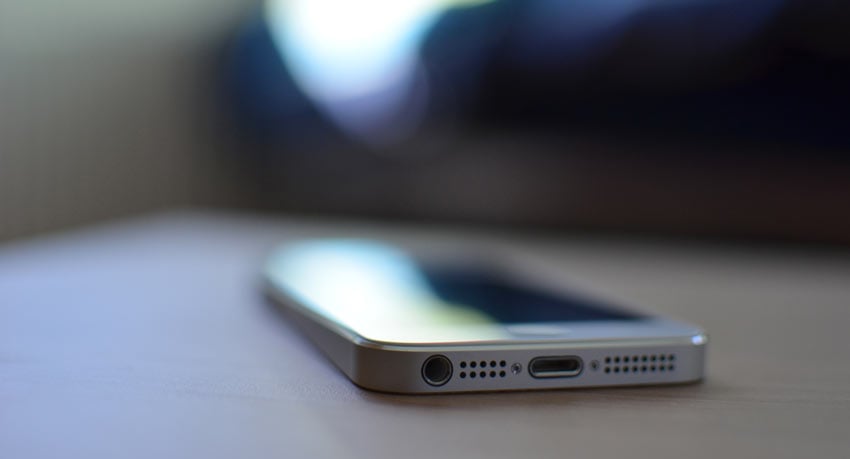
Not every situation is one that requires dialing 9-1-1; that line should be kept clear for true emergencies only. 911.gov defines a true emergency as “any situation that requires immediate assistance from the police, fire department or ambulance.” They also recommend that if you’re unsure whether the situation is a true emergency or not, call and let the call-taker determine the best course of action.
What if a non-emergency situation arises that could still use the assistance of a police officer or fire department? Do you have their numbers saved into your phone? What are some other numbers you should have ready at a moments notice?
Here are 5 to get you started:
1. Local Police Department
Having quick access to your local police departments non-emergency number is useful in the case you need to report someone disturbing the peace or acting suspicious. You may also be able to request increased patrol due to prowlers, speeding vehicles or similar concerns. Again though, if you feel the situation is life threatening, you should call 9-1-1 but for everything else, your local police department should be able to answer a lot of questions.
2. Poison Control Center
You may think that most calls to poison control are about young children accidentally getting into medicine or cleaning supplies but the call-takers are also available to help in a number of other ways. They deal with everything from identifying recalled food products to snake bites. The poison control hotline is available 24 hours a day, 365 days a year and the call is always free. If you have any questions at all, call: 1-800-222-1222.
3. Local Fire Department
One instance for calling the local fire department would be to inform them of a small fire that’s now extinguished, but one you could still use their help with to check things out or assess for more damage. Another common reason is getting spilled gas or vehicle fluids cleaned up after a car accident. As just one example, AAA Road Service won’t tow your vehicle after an accident until the fire department has cleaned up fluids on the roadway caused by the accident. Don’t call them if your cat is stuck in a tree though. Maybe just ask to borrow a ladder from your neighbor.
4. Animal Control
If you see a sick or injured animal, it’s best to call for help. Whether this is a domesticated or wild animal, you can’t be completely certain of the situation and it could have rabies or another harmful disease. You can also call animal control if you’ve lost your pet or need to report animal cruelty as they often have records for those things.
5. 3-1-1
It may be so short that you don’t need it in your speed dial, but it’s still a great one to have on hand. Dialing 3-1-1 in most U.S. cities is available to answer loads of non-emergency questions. Some possible calls that would be covered by calling 3-1-1 are reports of animals either confined or dead on the road, noise and air pollution, reporting of litter, graffiti or even potholes among other things. It’s a type of local directory specifically for your city’s services.
Contacting Family Members
Adding titles to the names of family members in your phone’s address book may prove useful. Titles such as “wife” or “brother” before the names could even help get a lost phone back to you more quickly. Many people also utilize the “ICE” method in their phone contacts list for use during an emergency.
If you aren’t familiar, some advocate typing “ICE” (In Case of Emergency) before certain names in their phone so that first responders or good samaritans will see it and call that number. In most true emergencies however, first responders will often be too busy trying to help you than to go through your phone.
I asked Eric (our Law Enforcement correspondent) and a few of his colleagues for input on the “ICE” method. They came to the conclusion that while this method would rarely be used during an emergency, it’s still not a bad idea to implement. It was also noted that most people have their phone locked with a passcode, which would make searching the phone impossible. A downside to both the family member title and ICE methods are that if your phone is stolen, the thief may be able to use that against you by contacting family members and asking to meet up or give personal information through a text message or email. Just something to think about.
Another phone number that could be beneficial to have on speed dial is the number for the American Red Cross Safe and Well program: 1-800-RED CROSS (1-800-733-2767). During a disaster, you can call that number and provide your contact information, so family and friends will know you’re safe. Alternatively, you can search for people you know that have marked themselves as safe if the situation is reversed.
Extras
While almost everyone these days has smart phones, those that don’t may need some help looking up the numbers or addresses of local businesses. Dialing 4-1-1 isn’t free anymore and the best alternative from Google has been discontinued. If you don’t mind sitting through a short advertisement, you can call 1-800-FREE-411 (1-800-373-3411) for free directory assistance.
On a lighter note, if you’re bored and not in any kind of emergency, give 719-26-OATES a ring. It’s “Callin’ Oates,” your “emergency Hall and Oates hotline.” Perfect for when you need just a little Hall and Oates.
What are some other useful phone numbers you’ve saved on your phone?